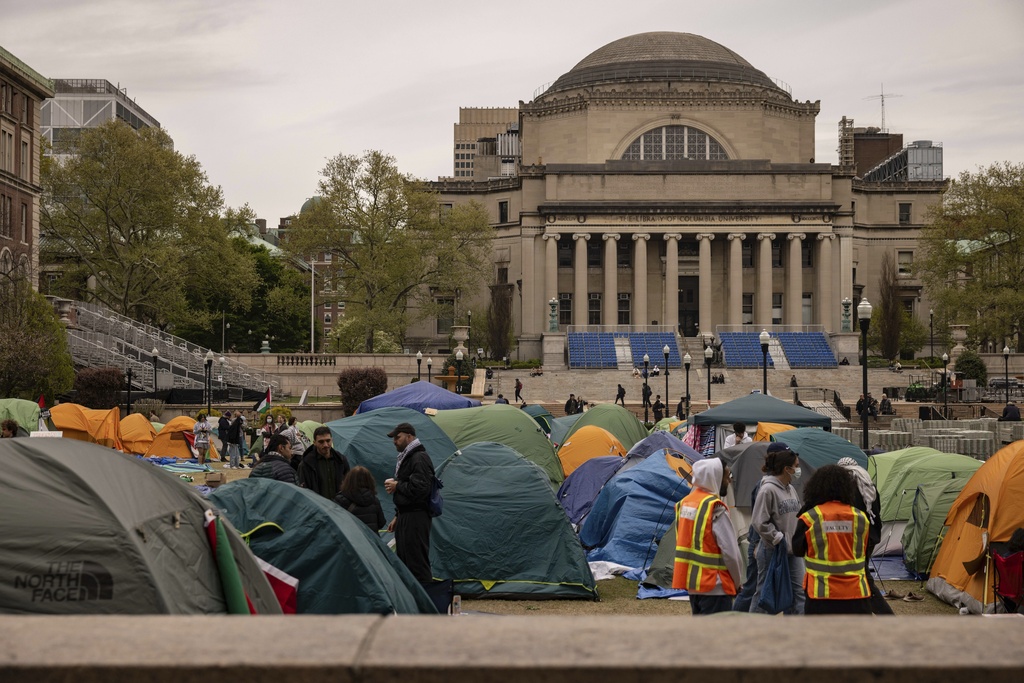What to Know
- Families who have lost a member to COVID-19 are grappling with mixed emotions after suffering the death of a loved one who they believe died of coronavirus complications, with death certificates saying their passing came from another cause.
- As of last September, the COVID-19 Funeral Assistance program approved over $300,000,000 in costs for more than 40,000 applicants in New York and New Jersey, according to a FEMA release.
- A FEMA spokesperson responded stating there are no plans to adjust the qualification to the program or start additional federal COVID-related assistance programs.
Families who have lost a member to COVID-19 are grappling with mixed emotions after suffering the death of a loved one, who they believe died of coronavirus complications, with death certificates saying their passing came from another cause.
The Federal Emergency Management Agency (FEMA) launched a COVID-19 Funeral Assistance program in April 2021 to cover the funeral expenses incurred after Jan. 20, 2020 for deaths related to coronavirus.
To be eligible for up to $9,000 per funeral and a maximum of $35,500 per application, the death must be attributed to COVID-19 by proof of the death certificate.
Get Tri-state area news and weather forecasts to your inbox. Sign up for NBC New York newsletters.
As of last September, the program approved over $300,000,000 in costs for more than 40,000 applicants in New York and New Jersey, according to a FEMA release.
Iris Zacarias Mak resides in Rahway, N.J. and still remembers the days leading up to her father's, Luis Alberto Zacarias, death on July 20, 2021. Zacarias Mak says the family did not receive FEMA funeral assistance benefits as COVID is not listed on her father's death certificate.
To Zacarias Mak, her father died of complications after contracting the coronavirus and says that he may have suffered from long COVID, a long-term illness post the initial recovery from the virus. At the the time and in hindsight leading up to his death, there was no way to determine if her father was developing lingering post-COVID symptoms.
News
"When I visit him in Puerto Rico, I feel at home because I know that he's resting. The hardest thing that I have is that it's very hard going into a church. I feel like when I enter the church, my father is there," Zacarias Mak told NBC New York in an interview at her home in Rahway.
Rima Samman is from Belmar, N.J., and lost her brother, Rami, on May 10, 2020, at 40 years old. Rami entered the hospital in April 2020 with a high fever and trouble breathing before being transferred to a nursing home after having been potentially exposed to COVID-19.
When Rima was notified of her brother's death, she found his body in the COVID zone at the nursing home.
"At the time, there were not doing autopsies for anybody that's COVID-suspect. We couldn't find anybody that would be willing to do any kind of exam to figure out what the real cause of death was," Samman told NBC New York during an interview.
Samman says after a police investigation she finally got her brother's death certificate, which labeled Rami dying of natural causes -- something she claims could not be the case knowing his previous medical history.
With the grief journey hard enough, Samman's family spent thousands of dollars on the funeral, but Samman questions what if other federal benefits were to come down the line.
"I think of 9/11. 9/11 benefits and things like that weren't even being discussed until maybe four or five years after 9/11 happened to the U.S. Will our families be excluded again because our death certificate doesn't say COVID, even though we were at that time and everything else said COVID?" Samman explained.
Samman runs the nonprofit Rami's Heart COVID-19 Memorial located at Allaire Community Farms in Township, N.J. Through her work with residents, Samman met Janice Koehne, a widow and mother of two who lost her husband, Eric, on April 5, 2021.
Koehne is from Lyndhurst, N.J. and told News 4 that her husband, a frontline worker, died at home three days after returning from a hospital stay where he previously struggled after a COVID infection.
"Because he was just released from the hospital three days prior, I was told that there was no need to perform an autopsy because his death was not deemed 'suspicious,'" Koehne told NBC 4, who assumed COVID would have been listed on the death certificate.
Koehne is currently trying to find ways to amend her husband's death certificate to have COVID added, but without an autopsy, she has stumbled upon hurdles. During the interview, she opened up on how she is unable to fully grieve the loss and has yet to retrieve her husband's ashes.
Samman and Koehne agree that losing out on the FEMA funeral benefits may have been a financial hit, but even worse is not receiving the closure to what they say is the truth behind their loved one's death.
"For anybody that thinks that it's about money, no amount of money is worth your loved one. Rami coming back -- if that meant being poor and living in a box, we would take it. We already have suffered a lot more than that," added Samman.
In June of 2021, FEMA had adjusted the policy for applicants to submit a letter from the death certificate’s certifying official, medical examiner or coroner that attributed the death to COVID that occurred between Jan. 20 and May 16, 2020.
NBC New York reached out to FEMA on the possibility of changing the eligibility for funeral assistance applicants who may not have COVID-19 listed on the death certificate.
A FEMA spokesperson responded stating there are no plans to further adjust the qualification to the program or start additional federal COVID-related assistance programs.



